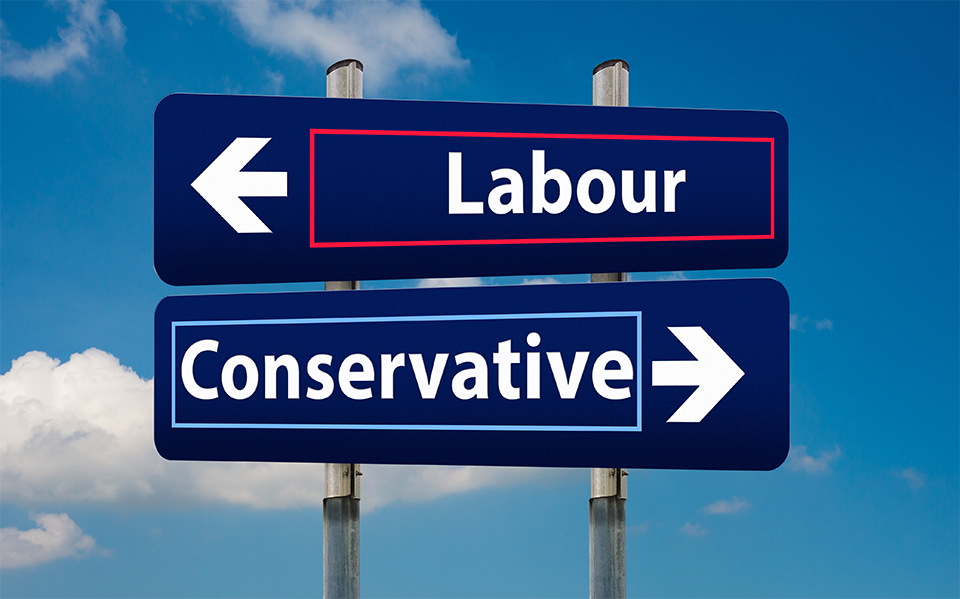

Rob Ewers
The Author is an ALL council member and a democracy campaigner
As a long time electoral reformer I draw conclusions from votes cast rather than seats won
I find it continually bemusing that the media-political class pay no mind to the votes cast for each party. The level of support you and your preferred policies have is of no consequence to the game of British politics. Yet we are a democracy. Sort of. Sort of is good enough. Good enough for you, anyway.
At the risk of sounding like a certain former US President who is currently soiling himself awake during a porn star hush-money trial, if you lose, you’re a Loser with a capital ‘L’. Rather than soberly assessing the appeal of their policies, parties of all colours put this level of triumphalism/defeatism on full display, even for the most marginal of victories or losses.
Labour gains in the local elections must, of course, be shouted from the rooftops by the Party’s campaign team. Tory losses must be downplayed and every available excuse pushed by dead-eyed party spokespeople over Zoom, as they glance distractedly at their CVs. But at the recent local elections, an interesting trend has crystallised.
Labour made most gains with +186 seats but the Liberal Democrats (+104), Greens (+74), Independents (+93) and ‘others’ (+11) took considerably more seats combined (+282) than Labour. The only Losers were the Conservatives (-474), nearly halving their previous number.
All this is difficult to calculate in terms of vote share and seats won or lost in a General Election, but it does beg one question: are people voting for Labour, or simply voting against the Tories?
It’s no secret, even in Labour circles, that Keir Starmer isn’t as popular as he should be. But this isn’t just another pop at Keir Starmer’s Labour. I was a member for many years. I voted for Keir to become leader. I actively campaigned for Labour and held a number of local officer roles, have been a local election candidate and been to party conference. I know how the party works and still identify with many of the socialist principles that it stands for. I think Keir is highly competent, and you cannot credibly downplay the merits of his career, which has carried an undercurrent of socialism with it (until relatively recently) while occupying some of the most ‘establishment’ offices in the land. However…
According to a recent YouGov survey, Stamer is seen unfavourably by 53% of voters. Only 35% have a favourable view of him and an only slightly better 38% have a favourable view of the party.
The pollster Sir John Curtice summarised on BBC News after the local election results that:
‘Labour are where they are, not primarily because of the way Keir Starmer has repositioned his party, but primarily because of the mistakes made by his opponents. […] But Labour keep on saying Sir Keir Starmer changed the party and that’s why we’re 20 points ahead in the opinion polls. That just doesn’t fit the timeline at all’.
Recently, Labour has haemorrhaged support from Muslims and progressives due to their botched handling of the Israel/Gaza conflict. Their overall membership has declined by 23,000 over this issue alone. This should ring major alarm bells for a party approaching a predicted landslide victory. Instead a senior Labour staffer called it ‘shaking off the fleas’. Labour also suffered a shock defeat in Oldham after a coalition of progressive and Muslim activists ran a successful campaign to deny them the council.
Parliamentary candidates and doorstep campaigners are privately expressing disappointment at the leadership’s lack of substantive policies, and their back-pedalling on key issues such as the green investment fund, driven by arbitrary ‘fiscal rules’ created by the Conservatives. They have rejected restoring freedom of movement within the EU for young Brits, again aping the Tories. The EU and the young are not exactly Labour’s historic enemies, but maybe this is what they mean by ‘a changed party’.
83% of Labour members and 2/3rds of the Parliamentary Party support Proportional Representation (PR), as do 51% of the electorate and a majority of affiliated Trade Unions, who contribute vast sums of money to Labour. In 2022 a motion supporting PR was finally passed at conference after years of effort by activists. PR is the only issue the left and the right of the party agree on. In fact, the displays of public agreement on this issue between people in Labour who otherwise loathe each other are at times staggering.
Since Keir seems so keen to emphasise his salt of the earth, council estate made-good, football loving credentials, I shall use that analogy. Despite creating an open goal and even expanding it in multiple directions to compensate for ball handling skills so bad they actually make home supporters leave, and while the majority of the crowd loudly invites them to score, Labour are yet to take this particular shot, preferring instead to ask the away supporters if it’s ok with them, and seek assurances they won’t be too angry at the colour of their increasingly purple (see what I did there) home kit.
Regardless, there is very little doubt that Labour will win the next election with a substantive majority. Our current system simply will not allow any other outcome. They of course know this, and have no incentive to do better. Some supporters, whose votes they were taking for granted may have turned against them but they are a tiny fraction of the national vote, so maybe they are simply ‘fleas’ to be shaken off.
However, all these problems are illustrative of a broader picture and not entirely Labour’s fault. Yes you read that right. The Labour Party contains many good people who want to do the right thing, and understand the nuances I am describing. There are even some who are openly critical of the leadership but their letters from the Compliance Office (that’s actually its name) are no doubt in the post.

The fact is, the age of traditional party allegiances is over. The public now has more complex positions and nuanced views. The parties have struggled to adapt, trapped in a binary voting system that kills off fresh thinking and amplifies disagreements into full blown factional warfare. Party officials deploy byzantine rule books to punish dissent while the gap between the leadership and ordinary members becomes a chasm.
Both Labour and the Tories are starting to impose ‘state approved’ candidates because they simply don’t trust their members. For Labour this goes for the unions as well (but if they could keep paying the bills that would be great). Equally, the Tories have never been more distant from the needs of commerce, as the exodus of big business donors to Labour shows.
Despite this, our First Past the Post electoral system is propping up the ‘two old boys of Westminster’ while crushing the life out of smaller parties, regardless of their support, and yes…votes cast. But those votes don’t count. Literally. I mean they literally do not affect the outcome of the election on any level. Voters for marginal parties are wasting paper. We have an election system where it’s almost environmentally irresponsible to print the correct number of ballot papers.
The local election results reinforce this gradual breakdown of the Tory/Labour duopoly. This is a trend that I hope continues. The further the distance between the electorate and their available options, the stronger the demand for change. Why am I so focused on electoral reform efforts within Labour? Because, for better or worse, under our current system, they are the only party who have even a chance of implementing real, lasting change. Frustrated, politically homeless progressives must pressure them into doing so.
We must keep reassuring Labour their red shirt looks fine and reminding them the away fans are there to support the away team. Tell them they wouldn’t be where they are now without home support, including from the ‘fleas’ (which I really hope didn’t mean Muslims). Make sure they hear the majority of fans in the stadium, not just the home team, chanting for them to give the ball the lightest of touches, sending it slowly over the line into the goal almost regardless of what direction they kick it in.
I joined Alliance Now UK because I hope this shift in public thinking will not just bring a change in the way votes are counted but systemic constitutional change. PR on its own will not be enough, and that is what ALL argues. Much like climate change, we need to stop thinking about whether to address these issues, and start the conversation from the basis that we need to. ALL aims to turn progressive voters who know what they’re against, into people who know what they’re for.
Our immediate issue is that Labour must deliver changes they probably can’t envisage at the moment. External pressure will be vital. The way forward is simple; it is to keep going. Keep existing. Keep having conversations that make Labour uncomfortable, but in a way that also plays to their sense of ownership of revolutionary acts.
Present this as an opportunity for their collective ego, to take credit for something profoundly good. An irreversible change in public life that will bear their mark for generations to come, just as the NHS does. As a recently departed member, with years of active involvement, I still want (need?) Labour to genuinely succeed, as do progressives of all stripes.
You’re probably wondering whether you should vote for them. Well firstly, which constituency do you live in? Who is most likely to beat your local Tory and ‘yeet them into the sun’ as Superantskii puts it. Read what you like into that comment. Secondly, it’s up to you. This is a democracy after all. Sort of.
Related Articles
Related
Labour’s Third Age
The Author is an ALL council member and a democracy campaignerI do not subscribe to the Fourth Turning Theory, which argues that social history comes in four distinct cycles that repeat or rhyme with their historical counterparts' ad infinitum. Though I agree history...
The Paradox of Political Parties
The Author has been involved in politics for decades, including as an independent councillor for many years. It is a moot point whether our political system has created the political parties we have or whether they have created the system under which they thrive. As...
